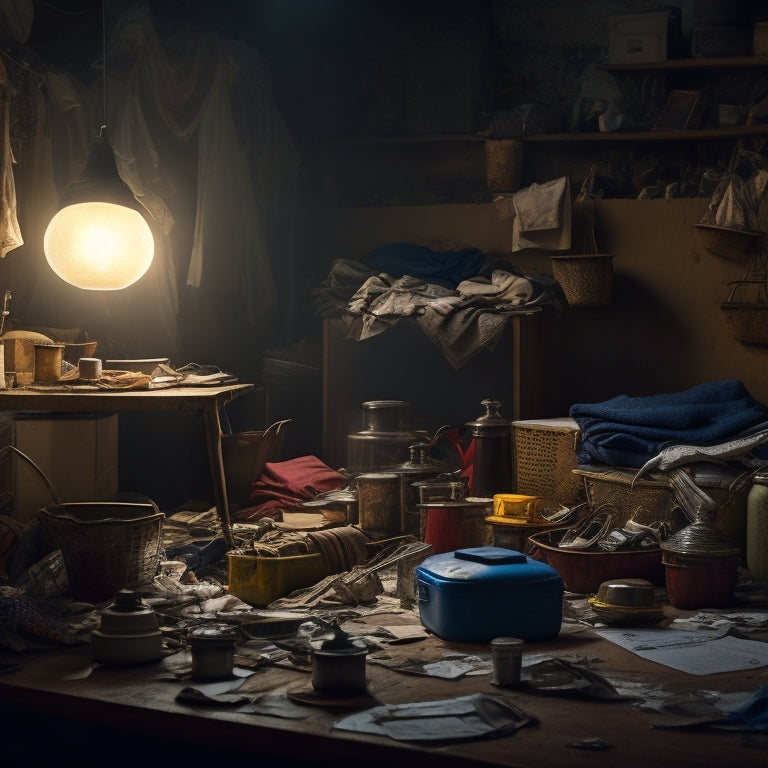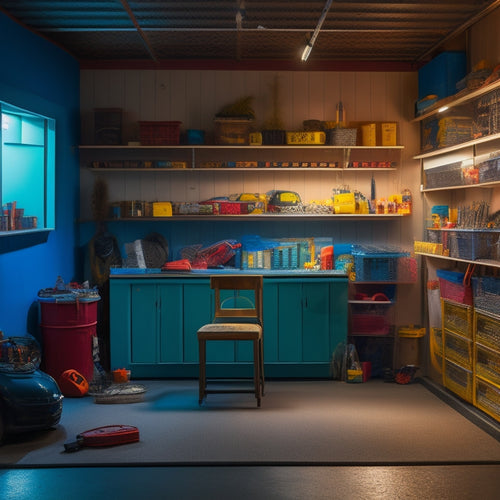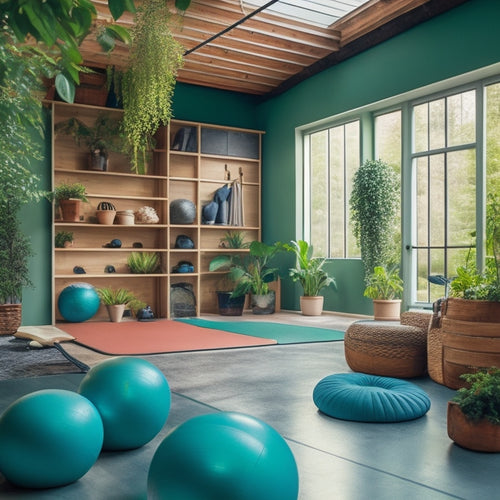
Unpacking the Purpose of Our Clutter Craze
Share
We've created a clutter culture that's as overwhelming as it is revealing, with overflowing landfills and packed storage units serving as stark reminders of our deeper psychological and emotional vulnerabilities. It's clear we're trying to fill voids within ourselves with stuff, compensating for feelings of loneliness and low self-esteem. But this coping mechanism provides only temporary relief. We're stuck in a cycle of accumulation, distracting ourselves from the need to confront our true emotional needs. As we explore this craze further, we may uncover a path to redefining what truly brings us purpose and happiness.
Key Takeaways
• Our clutter craze stems from using stuff to compensate for inner emptiness, low self-esteem, and emotional voids, rather than addressing the root issues.
• The accumulation of possessions is a coping mechanism that provides temporary relief but ultimately perpetuates feelings of loneliness and disconnection.
• The true purpose of our lives is not found in accumulating more stuff, but in cultivating meaningful relationships, experiences, and personal growth.
• By letting go of unnecessary items and focusing on what truly adds value to our lives, we can rediscover purpose, joy, and fulfillment.
• The clutter craze is a reflection of our misguided priorities, and by shifting our focus to what truly matters, we can break free from the cycle of consumption and clutter.
The Clutter Conundrum Unraveled
As we take a closer look at our cluttered lives, it becomes clear that we're not just accumulating stuff, we're being accumulated by our stuff. It's a crazy cycle, and we're not alone. The stats are staggering - billion-dollar storage units, unused rooms, and landfills overflowing with discarded items.
But what's driving this craze? We're uncovering motivations that go beyond mere consumerism. There's a psychological impact at play, where our stuff becomes a Band-Aid for deeper issues. We're trying to fill voids, prove our worth, and find comfort in material possessions.
But it's time to expose the truth: our stuff isn't bringing us the happiness we crave. By acknowledging the underlying motivations, we can start to break free from the clutter conundrum and find a more fulfilling way to live.
Filling the Voids Within
We often turn to stuff to compensate for the emptiness we feel within, but it's essential to recognize that this coping mechanism only provides temporary relief. We're not fooling ourselves, and the voids remain unfilled.
Our emotional attachment to possessions stems from a deeper psychological impact - we're trying to fill holes in our lives with material things.
We use stuff to distract ourselves from feelings of loneliness and low self-esteem.
We accumulate items to cope with the loss of social connection and a sense of purpose.
We're driven by a need for love and validation, which we mistakenly seek in material possessions.
We're bored and unfulfilled, so we shop and accumulate to feel momentarily satisfied.
Redefining Purpose and Happiness
Let's redefine what brings us purpose and happiness by recognizing that true fulfillment doesn't come from accumulating more stuff. We've been conditioned to believe that the more we have, the happier we'll be. But that's just not true. It's time to shift our focus from material possessions to what truly brings us joy.
| Redefining Fulfillment | Seeking Joy | Practical Steps |
|---|---|---|
| Focus on experiences | Prioritize relationships | Schedule regular dates with friends |
| Cultivate gratitude | Practice mindfulness | Meditate for 10 minutes daily |
| Find purpose in helping others | Engage in acts of kindness | Volunteer at a local charity |
| Embrace simplicity | Let go of unnecessary items | Donate unwanted clothes this week |
Frequently Asked Questions
How Do I Sustain a Clutter-Free Lifestyle After Initial Decluttering Efforts?
"We're finally clutter-free, but now the real challenge begins! We maintain our space by adopting daily habits, like the 'one in, one out' rule, and cultivating a maintenance mindset to keep our stuff from owning us again."
Are There Specific Decluttering Strategies for People With Sentimental Attachment Issues?
When tackling sentimental clutter, we acknowledge our emotional triggers and create memory boxes to store a few chosen keepsakes, allowing us to cherish memories without being overwhelmed by the emotional weight of every item.
Can Clutter Affect My Mental and Physical Health, and if So, How?
"We're perpetually plagued by clutter's pesky presence, and it's no surprise it's affecting our well-being. Clutter can trigger stress, altering our brain chemistry, causing anxiety and depression; it's time to tackle the mess and reclaim our mental and physical health."
How Do I Involve and Motivate Family Members in Decluttering and Organizing Efforts?
We tackle the Current Question by acknowledging family dynamics and fostering team building: we assign decluttering tasks, create a reward system, and lead by example, making it a fun, collaborative effort to achieve a clutter-free haven together!
What Are Some Eco-Friendly Ways to Dispose of or Repurpose Unwanted Items?
We're shocked that 25% of Americans can't even park in their garages! When decluttering, we opt for eco-friendly ways: upcycling old furniture into decor, repurposing textiles into reusable bags, and donating gently-used items to reduce landfill waste.
Related Posts
-

Shelving Solutions for Small Garage Spaces
You can optimize your small garage space by implementing strategic shelving solutions that maximize vertical storage,...
-

Easing Arthritis Pain: 7 Garage Storage Tips
You can ease arthritis pain in your garage by creating an accessible space that reduces strain and minimizes bending ...

